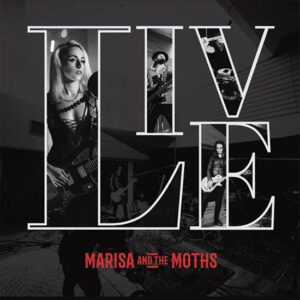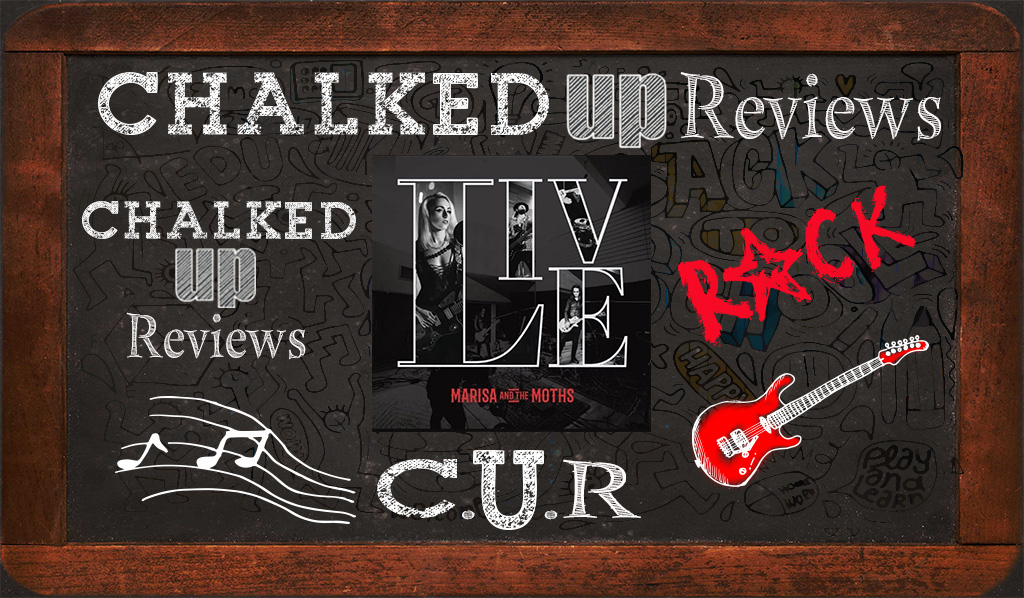
There are ghosts in every room of Abbey Road Studios, and on Live – Studio 3, Abbey Road, Marisa and The Moths speak directly to those ghosts, and to the ones inside us. This is more than a live-in-the-studio rock record; it’s a document of becoming. A confrontation with past trauma. A hard-earned celebration of survival. And most of all, a fiercely honest portrait of what happens when a band chooses to relive them because of us.
Captured in the legendary Studio 3, this album is saturated in memory and movement. Funded through the unwavering support of fans, many of whom quite literally willed this session into existence, Live – Studio 3, Abbey Road is also dedicated to Martin Hopkins, a close friend and supporter of the band who helped make the recording possible before passing away shortly after. His presence lingers in the stillness between tracks. You can hear him in the silence, in the shared breath, in the emotional gravity that Marisa Rodriguez and her bandmates carry into every phrase and downbeat.
From the moment “Needy” begins, you know this isn’t going to be a sterilized live session. There’s warmth in the studio noise, in the open chords, in Marisa’s unfiltered vocal tone. The song doesn’t crash out of the gate; it builds. Her voice enters alone over steady guitar strumming, colored by expressive glissandos that already hint at what’s coming. When the full band lands, Liam Barnes anchoring the groove on bass, Alez D’Ella slicing through with guitar, Alex Ribchester driving it forward on drums, it feels like a band firing on all cylinders.
“Skin” is built around a moody alt-rock tension, it rides the edge of implosion, until the chorus cracks it open. Marisa’s voice shifts from breath to belt without warning, yet always feels grounded. The interplay of rumbling bass and driving drums is complemented by distorted guitar textures. This is the kind of performance that strips a song of artifice and lets it bleed.
Then comes “Who Are You Waiting For?,” a centerpiece that marries melody with existential ache. The band hits a driving rock beat here, muscular yet responsive, and it’s in this pocket that their chemistry shines brightest. The final chorus is breathtaking, literally and figuratively. Marisa holds a soaring upper-register note that feels not like a climax, but a surrender. The line between performance and purging disappears.
“Sad” embodies emotional volatility rooted in a grunge aesthetic but unmistakably contemporary. The verses lean into numbness with near-spoken delivery, but the chorus is a geyser of feeling. This is music for anyone who’s been stuck in the loop of their own sadness, wanting out but not knowing where the door is.
“Get It Off My Chest” is raw catharsis in motion, with the title saying it all. Urgent, pounding, and relentless, it’s the sonic equivalent of finally saying the thing you swore you’d keep buried. The rhythm section is locked in, and the arrangement lets the emotional urgency stay front and center.
With “Choke”, the band shifts gears again. The mysterious intro of clean guitar textures and hushed vocals lures you into a false calm. But the pre-chorus begins to rise, and when the chorus hits, it’s full on. One guitar drives big chords while the other weaves an arpeggiated figure. The duality of chaos and clarity defines the song’s shape.
Lyrically, “Choke” gives us an overall theme of the album: “I could be someone else / But I’m not, I’m not.” This is not victimhood; it’s the sound of someone confronting the mask they’ve worn for too long and refusing to wear it anymore. The guitar solo is excellent and full of emotional bends and frantic energy before falling away into a sparse breakdown that allows Marisa’s voice to shine with warmth and vulnerability. Liberation doesn’t always arrive gently, but it arrives.
“Pedestal” signals the band leaning into dark, cinematic territory. The groove is slow, the harmony heavy with lament. But this isn’t a dirge, it’s a reckoning. The shifting textures, moody dynamics, and Marisa’s commanding phrasing turn it into a moment of realization. The illusion has crumbled. There’s sadness here, but also strength.
They close with “Borderline,” a track that doesn’t tie things up neatly. And that’s exactly why it works. The melody carries an emotional weight and ambiguity in equal measure. It’s a farewell, but also a circle. Nothing is resolved, because not everything can be. The band shows their chemistry.
While the bonus tracks are limited to the physical releases, an intentional nod to the tangible bond between band and fan, they deserve recognition. “Gaslight” and “How Did You Get So Weak?” extend the emotional arc of the album, offering more shades of anger, reflection, and reclamation. They’re not add-ons. They’re part of the larger narrative that only vinyl or CD holders get to complete.
Live – Studio 3, Abbey Road is a solid performance in a special venue. It’s the act of embodiment as Marisa and The Moths perform; they relive, re-feel, and re-own, which allows us to connect to the music. There’s no polish here to hide behind, only pulse, presence, and purpose.


